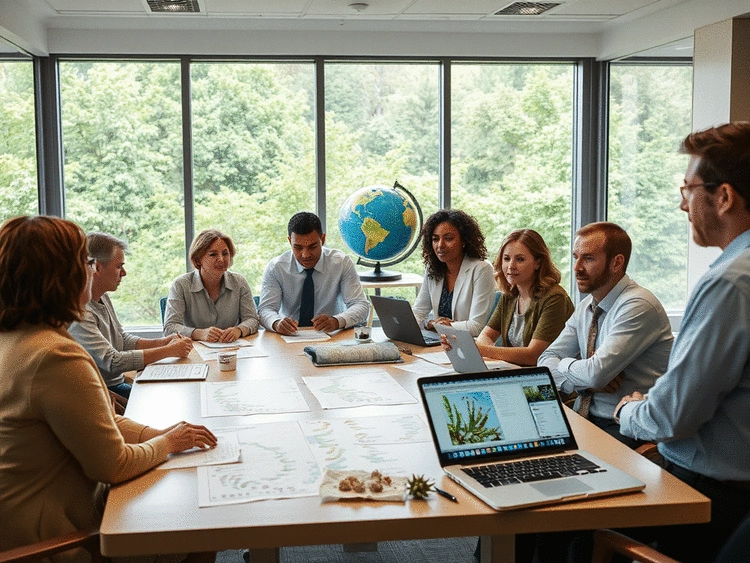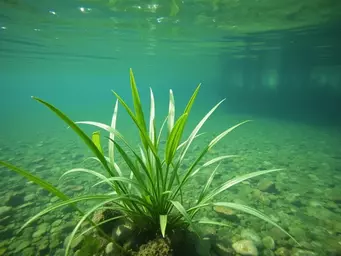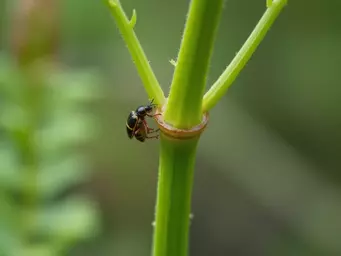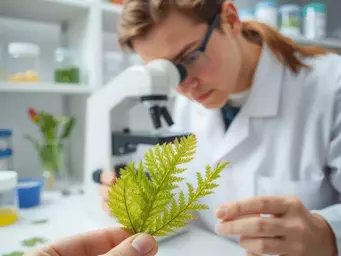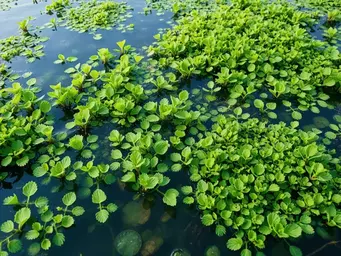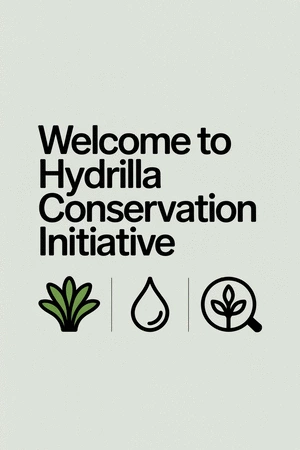Have you ever thought about the powerful impact that non-governmental organizations (NGOs) have on environmental policies? Their influence can shape the way we combat invasive species, ensuring our ecosystems remain healthy and vibrant. Let's explore the key insights from their pivotal role in environmental governance.
What You Will Learn
- NGOs provide crucial expertise and resources for effective invasive species management strategies.
- Collaboration between NGOs and federal councils helps align policies with local needs, enhancing community engagement.
- Partnerships with organizations like the IUCN enable NGOs to influence global strategies for combating invasive species.
- Individuals can actively contribute to combating invasive species by supporting NGOs through advocacy and community involvement.
NGO Impact on Invasive Species Policy
Non-governmental organizations significantly influence policy development, particularly in invasive species management. Their contributions span advocacy, research, and collaboration, shaping local and global conservation efforts.
Role of NGOs in Governance
- ✓Advocacy for science-based policies
- ✓Education & outreach programs
- ✓Research for policy decisions
Collaboration Impact Areas
- ✓Joint task forces with NISC
- ✓Shared resources for capacity building
- ✓Inform IUCN global strategies
Individual Advocacy Actions
- ★Contact elected officials
- ★Join local campaigns
- ★Participate in community meetings
Volunteer for Impact
- ★Gain hands-on experience
- ★Networking opportunities
- ★Contribute to local efforts
The Influence of NGOs on Invasive Species Policy Development
In the realm of environmental governance, non-governmental organizations (NGOs) play a pivotal role in shaping policies regarding invasive species. Their dedication to conservation and ecosystem recovery drives significant changes that impact local, national, and international efforts to manage these threats. Have you ever considered how much influence these organizations have in protecting our waterways and wetlands? Let's examine their contributions and the lasting effects they have on policy development.
NGOs provide essential expertise and resources that are vital in formulating effective strategies against invasive species. They often act as bridges between policymakers and the communities most affected by these environmental challenges. By advocating for science-based management practices, NGOs empower individuals and institutions alike to respond effectively to the growing threat of species like hydrilla and Asian carp.
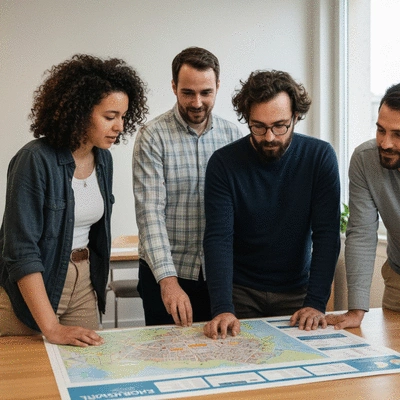
Understanding the Role of NGOs in Environmental Governance
NGOs serve as critical players in the environmental governance landscape. They foster collaboration among stakeholders—including governments, private sectors, and local communities—to ensure a comprehensive approach to invasive species management. Their efforts often lead to the creation of sustainable policies that prioritize ecosystem health.
- Advocacy for science-based management policies
- Education and outreach programs for community engagement
- Research initiatives that inform policy decisions
- Collaborative partnerships to amplify impact
Through these avenues, NGOs can significantly influence how invasive species are managed. Their partnerships with various stakeholders not only enhance awareness but also create a united front against threats to biodiversity.
The Intersection of NGOs and Federal Invasive Species Councils
Collaboration between NGOs and federal entities, such as the National Invasive Species Council (NISC), is crucial for the development of comprehensive policies. These partnerships help align federal strategies with local needs, ensuring that the voices of those most affected are heard. Have you ever participated in initiatives that connect local concerns with federal policies? Such interactions can lead to meaningful change.
- Joint task forces to address specific invasive species challenges
- Shared resources for capacity building in local communities
- Policy recommendations based on grassroots evidence
By working together, NGOs and federal councils can create frameworks that not only mitigate the impacts of invasive species but also foster resilient ecosystems. It’s a partnership that proves beneficial not just for policymakers but for everyone who values our natural resources!
NGO Partnerships with the International Union for Conservation of Nature (IUCN)
On a larger scale, the collaboration between NGOs and the International Union for Conservation of Nature (IUCN) shapes global strategies to combat invasive species. NGOs leverage their grassroots knowledge and experiences to inform IUCN's initiatives, thus influencing international policies aimed at preserving biodiversity.
- Participation in global forums and discussions on invasive species
- Development of international guidelines for best practices
- Sharing successful case studies that can be replicated worldwide
This partnership not only elevates local issues to a global audience but also fosters a deeper understanding of how invasive species affect ecosystems across borders. As we work towards protecting our waterways, it's essential to recognize the interconnectedness of our efforts!
Engage with Us!
We want to hear your thoughts on the critical role of NGOs in combating invasive species. How have you seen local organizations make a difference in your community? Share your experiences below:
Engaging in the Fight Against Invasive Species
As individuals, we have a powerful role to play in the battle against invasive species. Whether you're a seasoned environmentalist or just getting started, there are numerous ways you can actively support the efforts of non-governmental organizations (NGOs) like the Hydrilla Conservation Initiative. Here are some actionable steps to get you involved:
- Contact your elected officials to express your concerns about invasive species policies.
- Join local advocacy campaigns aimed at raising awareness about the impact of species like hydrilla.
- Participate in community meetings to share ideas and solutions.
- Spread the word through social media about the threats posed by invasive species.
By taking these steps, not only do you support NGOs directly, but you also contribute to a larger movement that protects our vital ecosystems. Have you ever considered how your voice can influence policy decisions? Every action counts!
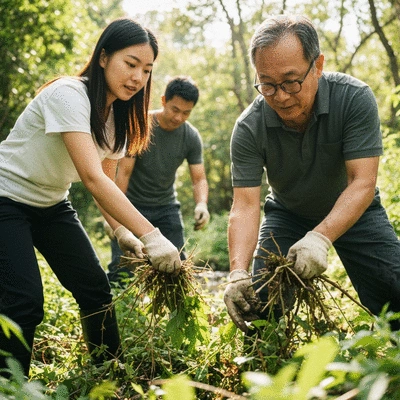
Getting Involved: Resources and Tools for Advocacy
Ready to dive deeper into your advocacy efforts? There are many resources available to help you engage effectively with NGOs. Here’s a handy resource guide to get you started:
- Advocacy Templates: Use templates for letters or emails to reach out to policymakers.
- Participation Guidelines: Learn about the protocols for joining campaigns and initiatives.
- Education Materials: Access brochures and flyers that explain the impact of invasive species.
- Event Listings: Find local events or volunteer opportunities that you can attend.
These tools can empower you to join the fight against invasive species confidently. At the Hydrilla Conservation Initiative, we believe that informed individuals are crucial for effective advocacy.
Volunteer Programs: Contributing to Local Invasive Species Initiatives
Volunteering with NGOs is not just beneficial for the organizations but also for you as an individual. Engaging in volunteer programs not only enhances community involvement but also fosters a deeper connection with nature. Here’s why volunteering matters:
- Hands-On Experience: Gain practical knowledge about invasive species management.
- Networking Opportunities: Connect with like-minded individuals who share your passion for environmental conservation.
- Community Impact: Contribute directly to local efforts, making a tangible difference in your ecosystem.
- Ongoing Support: Receive training and resources that empower you to take action.
Have you ever thought about how rewarding it could be to work alongside fellow advocates? Volunteering is a fantastic way to turn your commitment into action!
Frequently Asked Questions (FAQs)
- What is the primary role of NGOs in environmental policy?
- NGOs play a crucial role in advocating for science-based policies, conducting research, educating communities, and fostering collaboration to address environmental challenges like invasive species management.
- How do NGOs collaborate with federal councils like the NISC?
- NGOs collaborate with federal entities such as the National Invasive Species Council (NISC) through joint task forces, sharing resources for capacity building, and providing grassroots evidence to inform policy recommendations, ensuring federal strategies align with local needs.
- How do NGOs influence global strategies for combating invasive species?
- NGOs partner with organizations like the International Union for Conservation of Nature (IUCN) by participating in global forums, developing international guidelines, and sharing successful case studies. This helps elevate local issues to a global audience and informs international policies.
- What are some ways individuals can support NGOs in combating invasive species?
- Individuals can support NGOs by contacting elected officials, joining local advocacy campaigns, participating in community meetings, spreading awareness through social media, and volunteering for local initiatives. For additional policy insights, resources like the Congressional Sportsmen's Foundation on Invasive Species policy can be valuable.
- What benefits can individuals gain from volunteering with NGOs?
- Volunteering offers hands-on experience in invasive species management, networking opportunities with like-minded individuals, the chance to make a tangible difference in local ecosystems, and access to training and resources for effective action.
Recap of Key Points
Here is a quick recap of the important points discussed in the article:
- NGOs play a crucial role in invasive species policy development through advocacy, research, and community engagement.
- Collaboration between NGOs and federal councils like the NISC ensures policies align with local needs.
- The IUCN partnerships help shape global strategies for invasive species management, leveraging grassroots knowledge.
- Individuals can contribute by contacting officials, joining advocacy campaigns, and participating in community discussions.
- Resources such as advocacy templates and educational materials are available to empower effective engagement with NGOs.
- Volunteering with NGOs enhances community involvement and provides hands-on experience in invasive species management.
